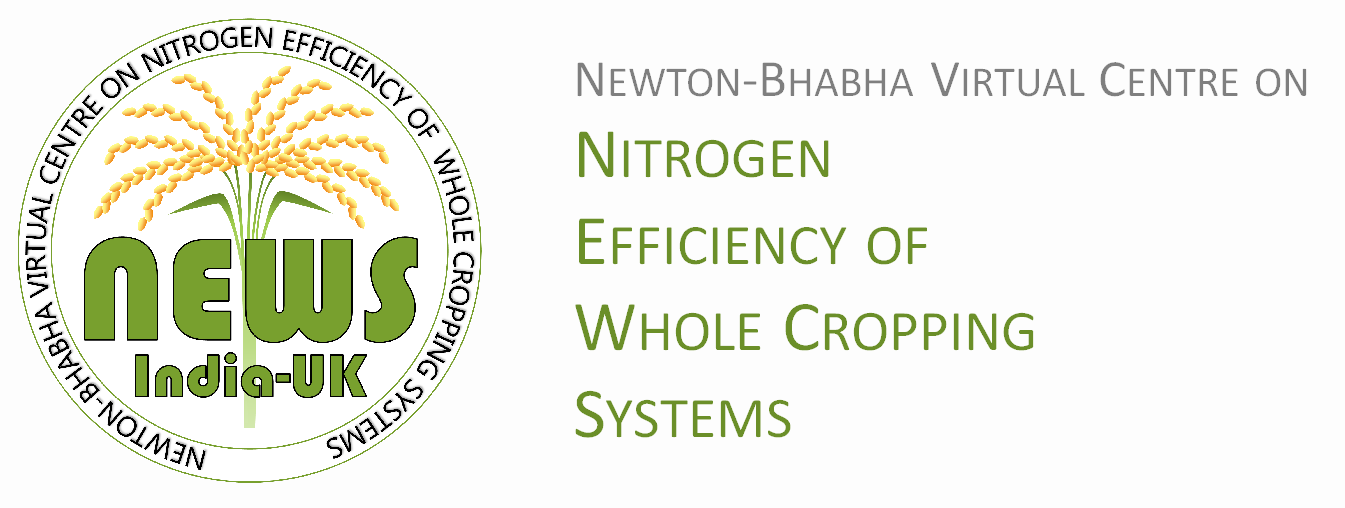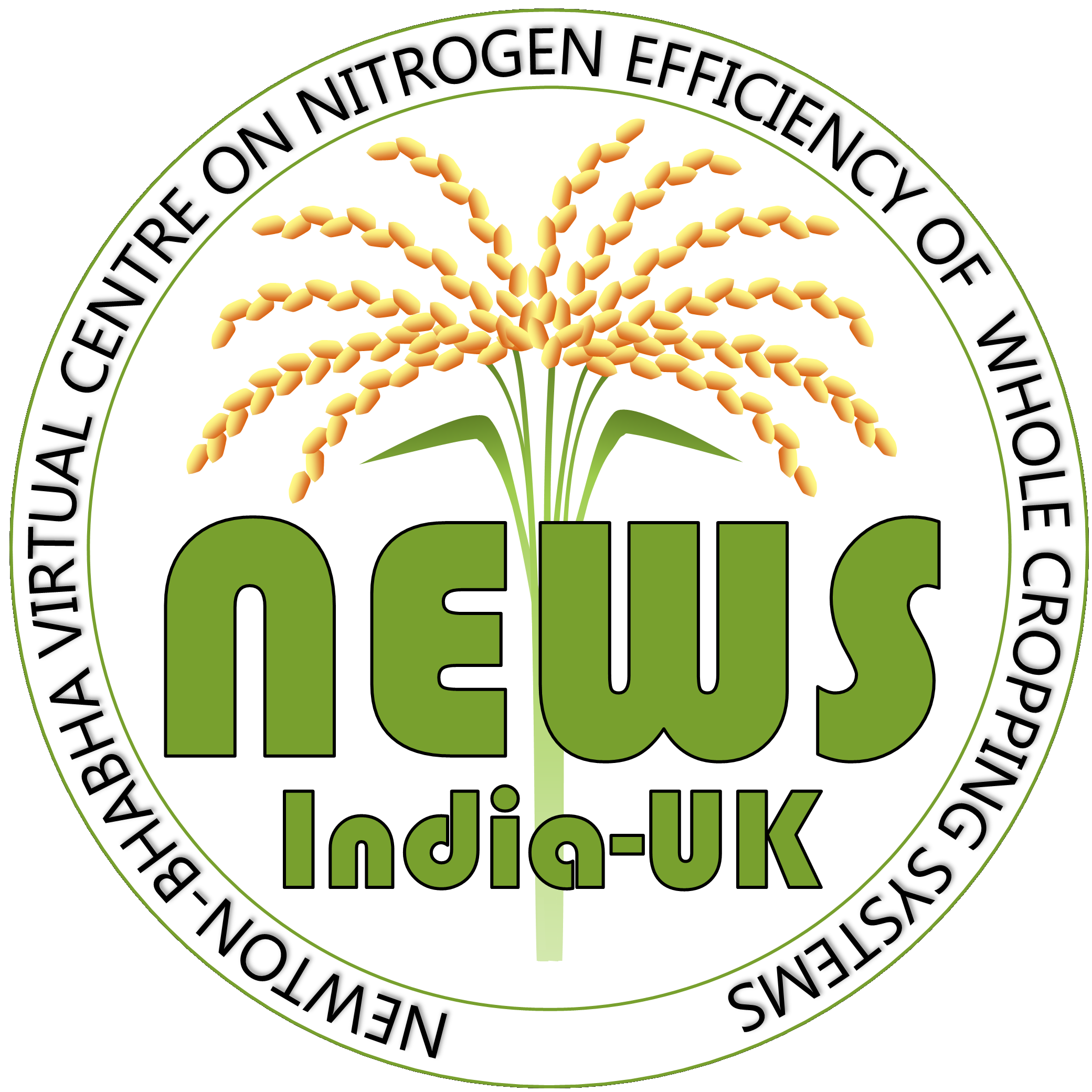The Joint Nitrogen VJC Meeting (Introductory Press Release)
Four India-UK centres meet to address the challenges and opportunities for agricultural nitrogen science in India at the National Agricultural Science Complex (NASC) New Delhi, this week [3-5 October]. The research of the centres, IUNFC, NEWS India-UK, CINTRIN and INEW, focuses on improving biological nitrogen fixation, and nitrogen use efficiency, including biological and agronomic perspectives.
One hundred delegates have come together from India and the UK, representing the first meeting of its kind to bring together leading expertise to find practical solutions that make more effective use of all farm nitrogen resources, while decreasing nitrogen pollution losses to the environment. The findings of the workshop will be [were] reported at 0900-1300 on Thursday 5 October at the NASC Pusa complex, New Delhi.
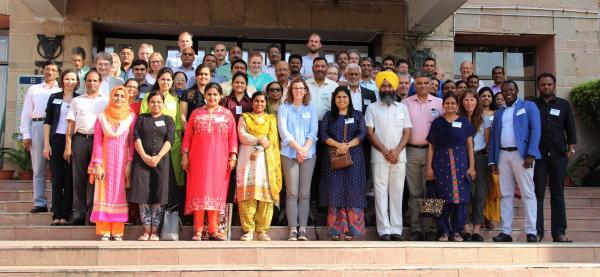
The delegates of the Joint Nitrogen VJC Meeting
The workshop is organized for the Indian Department of Biotechnology (DBT) and the UK Biological and Biotechnological Research Council (BBSRC) by the NEWS India-UK project, together with support from the International Nitrogen Management System (INMS) recently established by UN Environment with support from the Global Environment Facility.
The NEWS project co-leads Prof. N. Raghuram (biotechnologist, GGS Indraprastha University, New Delhi) and Prof. Mark Sutton (UK Centre for Ecology and Hydrology, and Chair of the International Nitrogen Initiative) commented on the emerging findings.
Prof. Raghuram highlighted the contribution to be made by improved genetic material: “Unused fertilizers in the farms account for over 70% of the nitrous oxide greenhouse gas emission in India. Improving nitrogen use efficiency is the only way to prevent a clash between our food security and environmental sustainability. The Indo-UK N centres are bringing together crop improvement by identification of better phenotypes and genotypes, with better agronomic practices and evidence-based N management to improve NUE at the crop level and beyond”.
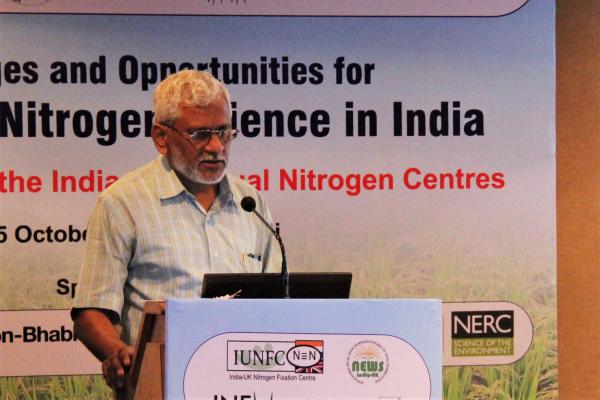
Prof. N. Raghuram
Prof. Sutton pointed out the importance of agronomic options for better fertilizer and manure use: “We should celebrate the achievement of India in implementing its Neem coated urea policy in 2015. Globally, this must be the most influential policy decision on nitrogen in the last decade.”
“The challenge now is to work out the next steps. We estimate that a 20% improvement in nitrogen use efficiency could save India £2 billion per year. For example, a “Neem Plus” approach would reduce greenhouse gas emissions, nitrate leaching, ammonia emission simultaneously, while contributing substantially to farmer profits and climate resilience”, added Prof. Sutton.
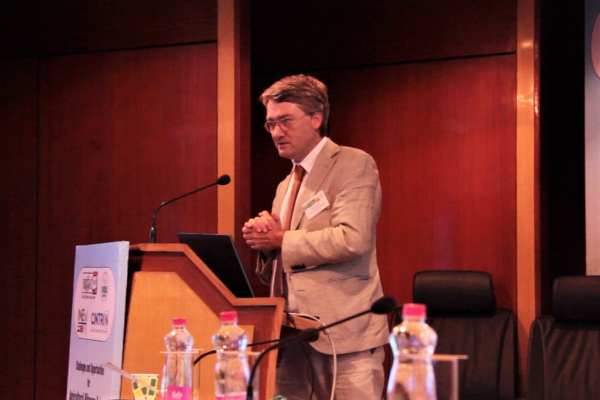
Prof. Mark Sutton
On behalf of the DBT, Dr. Shailja Gupta commented “The Newton-Bhabha programme on agricultural nitrogen represents a significant investment in farming for the future in India. We are only too aware of significant cost to farmers of fertilizers, which will surely increase in order to meet future food and feed demands, unless we can learn to manage it better.”
Her colleague at DBT, Dr. Sanjay Kalia, who manages the Virtual Nitrogen centres expressed his satisfaction with the partnership and emphasised the need for a longer term vision: “We are very keen that both India and UK support the virtual N centres until the end of the current tenure of the Newton Fund (2022) and beyond.” He underlined the need for developing score cards and advice for farmers to choose the right dosage for right variety for maximum nitrogen use efficiency. “We need to emphasize productivity rather than just production in cereals, whereas in pulses and oilseeds, we also need to boost production, and partnerships for these are also welcome” he added.
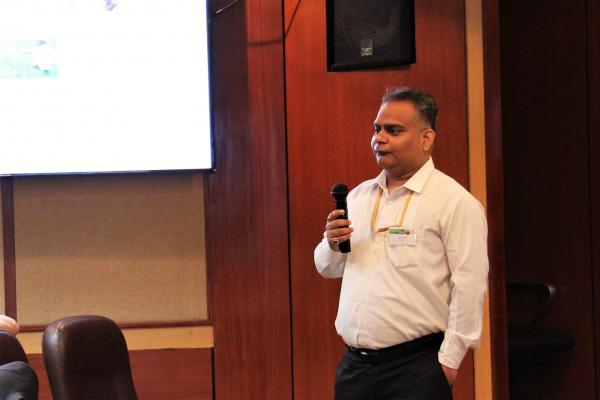
Dr. Sanjay Kalia
For the UK Government, Dr. Rita Sharma, Head of the Newton Fund India added: “I am really happy to see how the UK and Indian Governments’ Newton-Bhabha partnership is contributing to addressing challenges of nitrogen fixation and efficiency by bringing together agricultural scientists from the two countries. We look forward to the outcomes of the collaboration research being undertaken through this initiative.”
Related Material
Public:
The original text of the official press release can be downloaded below.
More photos: http://news-india-uk.international/vjcmeeting/gallery.
Twitter feed including photos and videos: https://twitter.com/nitrogenvjc.
Tweets with the conference hashtag: https://twitter.com/hashtag/nitrogenvjc2017
For VJC partners only (password-protected):
Conference presentations: http://www.news-india-uk.international/vjcmeeting/presentations
Conference posters: http://www.news-india-uk.international/vjcmeeting/posters
